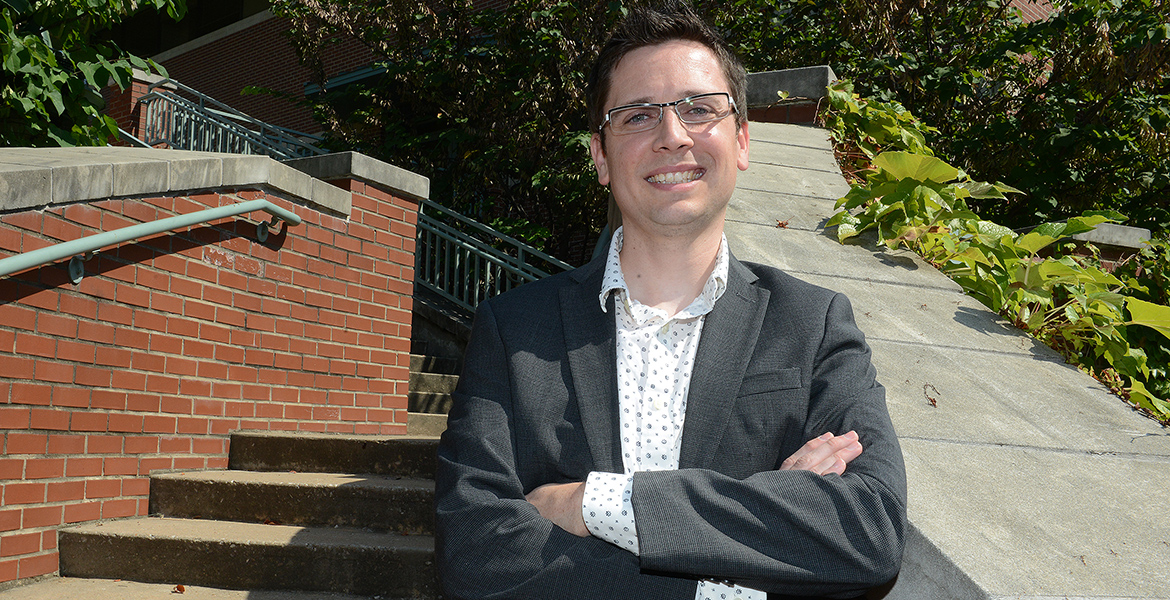
Judging Others
Wednesday, October 23, 2019
How egocentrism can cloud the public debate about welfare
Why some people negatively judge those who use public assistance to buy food has more to do with how public assistance recipients feel about what they buy than more obvious considerations, according to a study co-authored by an Oklahoma State University researcher. And those biased responses often have far more impact on policy debates about welfare programs than positions driven by data.
“There’s a lot of work on how ideology and income predict attitudes toward social assistance, but we wanted to look at this universal egocentric bias that people have regardless of political spectrum or income when judging welfare recipients,” said Dr. Steven Shepherd, Spears School of Business assistant professor of marketing and international business.
Shepherd collaborated on research involving 1,664 Americans in four separate studies published in the Journal of Public Policy & Marketing in May. The research with Dr. Troy Campbell, an assistant professor of marketing at the University of Oregon, found that the opinions of those surveyed about welfare recipients who use benefits such as the Supplemental Nutrition Assistance Program (SNAP) are based more on egocentric value judgments than any consideration such as why people need assistance.
“Egocentrism is using your own beliefs, your own attitudes, as a starting point for understanding other people,” Shepherd said. “But this often falls short. We’re all pretty bad about putting ourselves in other people’s shoes. You see no shortage of news stories about people buying this or that and being judged despite people not having a good understanding of the constraints that they might be under.”
Shepherd and Campbell wanted to study the consequences of differences between the value judgments of people who like different types of food compared with the purchases of those on public assistance, which often results in stereotyping. People on assistance are often criticized for buying food not believed to be healthy or appropriate for low-income households.
“Our research explores the less-studied stereotype of welfare recipients as irresponsible — that is impulsive, lacking self-control and generally failing to maximize value in their purchases,” the authors wrote.
On average in 2018, SNAP helped nearly 40 million low-income Americans buy food each month, according to the U.S. Department of Agriculture. Much of the policy debate surrounding the federal program, commonly referred to as food stamps, revolves around the types of products allowed. Shepherd and Campbell show that people project their own sense of values and preferences onto others even if that reinforces stereotypes and stigmatizes those receiving assistance.
“We wanted to see how this kind of basic cognitive bias can shape people’s attitudes toward some kind of broader social issues and ultimately policy attitudes as well,” Shepherd said.
The researchers point out that the stigmatizing of low-income people relying on welfare programs such as SNAP colors policy discussions about these programs. Proposed policies often target specific purchases based on personal tastes rather than objective evaluation of evidence.
“There are a lot of different foods that fall under the category of junk food, but if a welfare recipient buys chocolate and you don’t like chocolate, then you may see that as a waste and frivolous,” Shepherd said. “You may judge them negatively, and you don’t think chocolate should be covered under SNAP. But if it’s another junk food, such as potato chips and you like potato chips, you are literally to be more accepting of that being covered. We find that across a wide range of different purchases and products.”
Also included in their research was the analysis of hundreds of Facebook posts regarding a proposed change to SNAP rules a few years ago that would have allowed recipients to use benefits to buy pet food. Their observations reinforced the study’s hypothesis of the egocentric nature of the debate surrounding the proposal.
“Our analysis found that a strong predictor of support for this policy was simply whether one’s [Facebook] profile photos showed evidence of having a pet,” the authors wrote.
Low-income Americans who rely on public assistance have been found to suffer from low self-esteem, and the stigma associated with programs like SNAP can negatively affect enrollment, hurting the program’s effectiveness. And much of this bias takes place without any thought given to a person’s circumstances such as why they’re on welfare or how long they’ve needed help.
Shepherd said he is drawn to research topics that allow him to make sense of things more broadly than just in an immediate context.
“I like addressing questions I have about why people behave the way they do and why parts of society work the way they do, and to be able to answer those questions backed up by data and not just opinion or someone’s hunch,” he said.
Media contact: Jeff Joiner | Communications Coordinator | 405.744.2700 | jeff.joiner@okstate.edu
